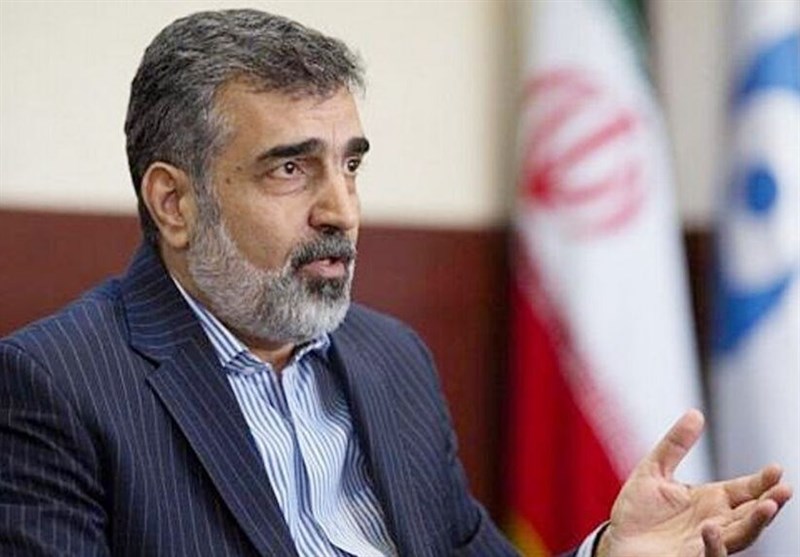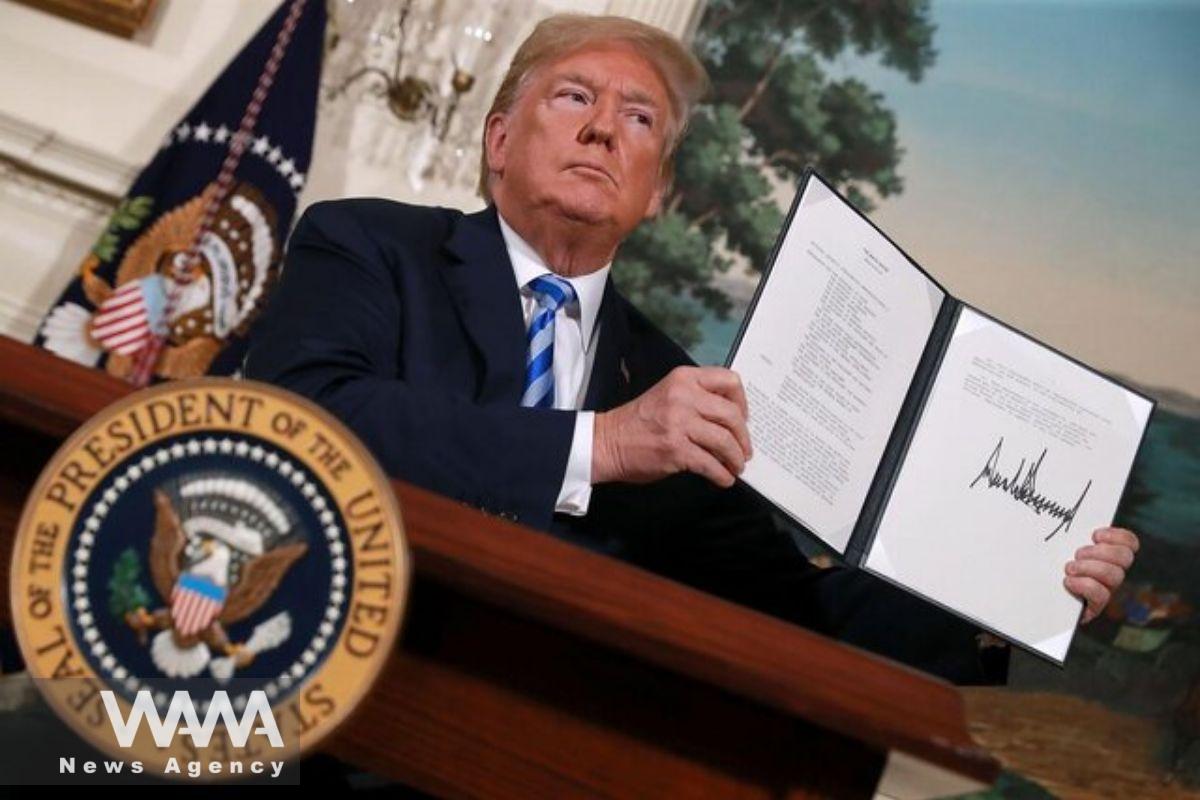Iran and the US: From Military Threat to Nuclear Negotiation
WANA (Jan 02) – A former US diplomat, reflecting on the second Trump administration and recent developments in West Asia, wrote that military action against Iran would entail serious risks for the United States and is unlikely to succeed. Consequently, the best course of action for Washington is to engage in renewed negotiations with Tehran.
Richard Nephew, the architect of sanctions against Iran during the Obama administration and a member of the Washington Institute for Near East Policy, analyzed recent regional developments and their implications for Washington’s policy on Iran’s nuclear program.
In an analytical article, Nephew stated: “For over two decades, American hardliners have called for attacks on Iran’s nuclear facilities, but their demands have always been rejected. These calls were primarily based on the global community’s support for the US against Iran and the underdeveloped nature of Tehran’s nuclear program. Currently, there are strong reasons to refrain from military action against Iran. Any such attack would plunge the Middle East into greater chaos.”

Larijani: Iran Ready for a New Nuclear Deal with Trump
WANA (Nov 22) – Ali Larijani, advisor to the Supreme Leader, has announced Iran’s readiness to negotiate a new nuclear agreement with the Trump administration. Speaking to Khamenei.ir, Larijani said: “I have heard the new U.S. administration has stated, ‘We do not accept the previous JCPOA… it is not sacred text.’ Fine, let’s discuss a […]
He further explained: “On the other hand, the US now needs to focus on other regions of the world. Any military action against Iran would be highly costly for Washington, and even if the US were to decide to target these facilities, the likelihood of failure is very high. Should America fail in a military operation against Iran, it would suffer a severe blow to its military credibility.”
The former US diplomat added: “The best solution to prevent Iran from becoming a nuclear state is a diplomatic agreement. Iran is closer than ever to becoming a nuclear power, and given the war between Tehran’s allies and Israel and Israel’s attacks on Iran, the country needs nuclear deterrence now more than ever. Furthermore, the global community is no longer united against Iran, and despite extensive sanctions, many countries, including China, India, and Russia, are violating these sanctions to continue cooperating with Iran.”

EU Spokesperson: We hope nuclear diplomacy with Iran will soon be revived
WANA (Nov 24) – A senior EU official has expressed hope for the resumption of nuclear diplomacy between the European Union and the Islamic Republic of Iran in the near future. Peter Stano, the European Union’s lead spokesperson for foreign affairs and security policy, stated, “Diplomacy is the best way to find solutions to […]
Nephew acknowledged that “the possibility of uniting the world against Iran is much lower than before,” and wrote: “Both US political parties are focused on countering China. Meanwhile, relations between Iran and Russia have reached their strongest level in decades. Therefore, given the high risk of failure in any military action against Iran, the Trump administration in its early days must engage in good-faith negotiations with Iran.”
The Risks of Military Action Against Iran
The former deputy special envoy for Iran elaborated further in the article: “There are numerous reasons to revisit diplomatic solutions. Most importantly, American officials cannot be certain whether any attack on Iran’s nuclear facilities would succeed. The US and its ally (Israel) have the capability to destroy Iran’s nuclear facilities entirely, but even such an attack would not deter Iran’s decision to pursue nuclear development or prevent it from relocating its facilities.”

Adoption of a Resolution by the IAEA Board of Governors Against Iran’s Peaceful Nuclear Program
WANA (Nov 22) – The Board of Governors of the International Atomic Energy Agency (IAEA), based on non-technical and politically motivated claims, passed its anti-Iran resolution with a slim majority. The resolution, adopted by the IAEA Board of Governors, calls on Tehran to take urgent and necessary actions to address alleged safeguards issues, despite […]
He also noted: “Iran could swiftly relocate its facilities and uranium reserves to secret locations before any US attack. Moreover, following an attack by a nuclear-armed country like the US, Tehran could more easily gain international support for becoming a nuclear-armed state and could use its relocated uranium reserves to build several nuclear bombs.”
Nephew’s claim about “the US’s ability to completely destroy Iran’s nuclear facilities” is contrasted by earlier remarks from Iran’s Foreign Minister Abbas Araghchi, who stated: “Diplomacy advances when backed by power, and it is precisely these factors that establish power. I have repeatedly said, and I firmly believe, that without our missile capabilities, no one would have negotiated with us. If they could have destroyed our nuclear facilities in a single military strike, what reason would there have been for negotiations lasting over two years? Why would US Secretary of State and the foreign ministers of the P5+1 meet for 18 consecutive days to reach an agreement? It was because they could not destroy our facilities militarily. Our armed forces, through deterrent missiles, created this capacity.”

Iran’s Atomic Energy Organization’s spokesperson : Western Pressure Fuels Iran’s Nuclear Expansion
WANA (Nov 23) – Behrouz Kamalvandi, spokesperson and deputy for international affairs at Iran’s Atomic Energy Organization, responded to Western actions at the IAEA Board of Governors meeting, stating that such pressures are ineffective and will only lead to an increase in Iran’s enrichment capacity. He remarked, “Every time a resolution is issued, fewer countries […]
The former US diplomat reiterated the risks and low probability of success in any military action against Iran, adding: “Even in the event of a complete success by the US in destroying Iran’s nuclear facilities and uranium reserves, decades of expertise possessed by Iranian nuclear scientists mean they could rebuild these facilities quickly.”
America’s Political Impasse Against Iran and the Lack of Global Support for Washington
Richard Nephew further emphasized: “Given the low likelihood of success in preventing Iran from becoming a nuclear state through the destruction of its facilities, the only viable option for the US, aside from negotiation, would be preparation for a full-scale war. However, Washington lacks the capability or willingness for such an undertaking. The option of regime change in Iran also does not guarantee a better future. The likelihood of a hostile regime coming to power after the fall of the Islamic Republic is very high.”
He added: “If the Islamic Republic falls, Iran will descend into chaos. While a small group might welcome this, such chaos is the primary reason Iranians do not seek regime change. Regardless of the outcome, any attack on Iran—whether a limited strike or a full-scale war—would be highly costly for the US. Reports already indicate shortages in American ammunition and air defense systems, and pressuring Washington under these circumstances would be illogical.”

The former US official said: “On the other hand, the international context is vastly different from the past. The war in Ukraine continues, and the risk of a Chinese attack on Taiwan looms large, while tensions have escalated across the Middle East. Military action against Iran, in a situation where Europe, the Global South, and America’s Arab partners are not aligned with Washington, would be fraught with danger.”
Trump: The Sole Reason Behind the JCPOA’s Failure
Richard Nephew, in his analysis, emphasized that diplomacy remains the “best possible solution” for “managing Iran’s nuclear program.” He wrote: “The sole reason behind the failure of the JCPOA was Donald Trump’s unilateral withdrawal from the agreement. Negotiations in 2021 and 2022 also failed due to Iran’s mistrust of the US and Europe, as well as Washington’s unwillingness to genuinely commit to a diplomatic solution. However, if Trump agrees to a new deal, the likelihood of Iran’s approval is high. Democrats are already in favor of an agreement, and if Trump consents, Republicans would likely support it as well.”

Larijani: Our Decision is Not to Build Nuclear Weapons, But We Are Close If Needed
WANA (Nov 04) – Mohammad Javad Larijani, head of the Institute for Research in Fundamental Sciences, discussed Iran’s nuclear policy, stating: “Our national policy is to advance nuclear technology and nuclear knowledge exclusively for peaceful purposes, without militarization at any stage. Our national capabilities are strong enough to serve as a deterrent on their own, […]
The architect of anti-Iran sanctions further explained: “Trump has expressed interest in reaching what he calls a ‘simple deal,’ but such an agreement would require complex efforts. Tehran and Washington would need to agree on limits to Iran’s nuclear program, Iran’s regional behavior, guarantees from the US, and the mechanisms for lifting sanctions.”
He continued: “Ultimately, America’s capacity to manage Iran’s nuclear challenge is limited. No American officials truly understand the mindset of Iranian leaders. Renewed maximum pressure on Iran could push it towards nuclearization, hiding its nuclear materials, withdrawing from the Nuclear Non-Proliferation Treaty (NPT), or even all three actions simultaneously.”
Nephew concluded by stressing: “There is no substitute for serious negotiations. The best and safest course of action is renewed dialogue.”












